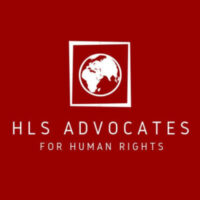2024 – 2025 Academic Year Projects
This year, our members will work across the world on an array of human rights and humanitarian issues. In each project, our members work under the supervision of the International Human Rights Clinic and leading international or domestic human rights NGOs.
Tackling Climate Change Through the UN Universal Periodic Review
Just Atonement trains planetary defenders to address threats to human rights, a habitable planet, and the international rule of law. This project offers students the unique opportunity to engage with the United Nations Universal Periodic Review (UPR) process, a peer-review process through which the human rights records of all 193 UN member States are comprehensively reviewed on a regular basis. Notably, NGOs and civil society can submit information through the UPR process, including reports alleging human rights violations committed by States.
As one of the few organizations focusing on climate change within the UPR framework, Just Atonement provides students with a unique opportunity to directly contribute to international advocacy on climate change, human rights, and international law. Through the UPR process, students will submit reports analyzing the impacts of climate change on human rights for 2-3 States. These reports will include detailed recommendations aimed at protecting human rights in the context of global warming. The reports generated by students will build on the detailed and groundbreaking human rights work submitted by several governments to the International Court of Justice and the Inter-American Court of Human Rights as part of those courts’ respective advisory opinion processes related to climate change.
Seeking Redress for Victims of State-Sponsored Abuse
This project focuses on strategic litigation and promises to inject fresh thinking into how practitioners can apply legal tools to advance human rights and accountability around the world. Students will play a critical role in preparing a landmark legal complaint against a state party under an international or regional convention on behalf of a marginalized group. The project specifically considers questions of refoulement, torture, and discrimination. Due to confidentiality and sensitivity, the legal strategy cannot be disclosed until the project team is selected. While the specifics of the case remain confidential, its global significance promises media attention and substantial impact. Working in partnership with a prominent international NGO, students will craft a compelling legal brief that will be submitted to an international body.
Effective Clearance of Landmines in Yemen
Human Rights Watch (HRW) is a nongovernmental human rights organization that documents human rights violations by state and non-state actors in more than 100 countries in the world. The organization is currently conducting research on the unlawful use of landmines in Yemen, and the impacts landmines have had on communities, including those who have been displaced from farmland for years. As part of this research, students will explore the myriad potential international law violations associated with land mine use in Yemen, including violations of international human rights law and international humanitarian law. Students may consider, for instance, how landmines can result in violations of civil and political rights as well as economic, social and cultural rights. Students will use the research to draft a legal memo that outlines the different ways in which landmines could result in violations of international law. The memo will support HRW’s efforts to advocate for an end to the usage of antipersonnel landmines in Yemen, as well as to advocate for greater support for landmine clearance efforts to respond to displaced communities’ needs.
Defending Sexual Orientation and Gender Rights in Africa
Founded in 2014, the Initiative for Strategic Litigation in Africa (ISLA) is a Pan-African and feminist initiative that aims to change the way that strategic litigation is used so as to enable broader access to justice and to support those who seek to hold states accountable for violations of women’s human rights and sexual rights. ISLA is currently pursuing the advancement of Sexual Orientation, Gender Identity, and Expression (SOGIE) rights in Africa and is conducting a comparative legal analysis to understand the interplay between law, politics, and societal attitudes in Inter-America and Europe. Students will analyze SOGIE rights litigation before the Inter-American Court of Human Rights and European Court of Human Rights to identify their potential applications to the African continent.
Examining Crimes Against Humanity in Mexico
The International Federation for Human Rights (FIDH) is an international human rights NGO with 188 member organizations from 116 countries around the world. Since 1922, FIDH has been defending all civil, political, economic, social and cultural rights, through litigation, documentation, advocacy, capacity-building, and other activities. Since 2014, FIDH, together with IDHEAS, Litigio Estratégico en Derechos Humanos (“IDHEAS”) – one of its member organizations in Mexico – and other Mexican non-governmental organizations and victims’ collectives have documented and denounced the commission of crimes against humanity, including enforced disappearances, murders and torture in specific periods and territories in Mexico. In relation to this work, FIDH has submitted article 15 communications to the International Criminal Court (“ICC”), urging the Office of the Prosecutor to open an investigation into crimes against humanity in Mexico. To date, no investigation on crimes against humanity in Mexico has been opened. This project would contribute to research on international case law for an advocacy report focused on why the ICC can and should investigate crimes against humanity committed by non-state actors, such as drug trafficking cartels – in Mexico, but also elsewhere. FIDH plans to use this report in a number of international settings.
Protecting Nepalese Cultural Heritage as a Human Right
The Nepal Heritage Recovery Campaign (NHRC) is a Kathmandu-based, human rights organization established by a group of legal advocates and community leaders. The NHRC investigates stolen Nepalese culture heritage that has migrated to the United States, communicates with U.S. attorneys, institutions, and activists internationally, and works to repatriate antiquities to local communities. Students will learn about Nepalese cultural heritage theft through documentary evidence, case law, and public comments, assess the treaty obligations of the U.S. and Nepal to protect and restore cultural heritage, and evaluate how U.S. government offices, law enforcement agencies, and museums can more efficiently and effectively collaborate with the Nepalese people. Students will draft a memo analyzing the rights of Nepalese victims of cultural heritage theft, outlining existing international legal frameworks on the right to culture and identity, and discussing legal reforms that could better prioritize the preservation of Nepalese culture. This project relates to ongoing cultural heritage destruction facing communities around the world.
Accountability for Human Rights Violations in Sudan
In April 2023, a civil war broke out in Sudan. Since then, the conflict has metastasized, with devastating consequences for civilians across the country. Namely, armed actors continue to commit egregious violations of international human rights law and international humanitarian law with impunity, including widespread extrajudicial killings and targeted attacks against medical facilities. Despite this, efforts by the United Nations to address the situation and promote accountability have been woefully inadequate.
The Sudan Human Rights Hub, a human rights NGO, is seeking to better understand the international community’s paralysis on accountability for international crimes in Sudan, with a particular focus on violence in Darfur. On this project, students will conduct a detailed mapping of how different United Nations Member States have responded to the armed conflict in Sudan, including in international fora. Students will, for example, analyze how states have addressed accountability in Sudan in the Human Rights Council, the Security Council, and the General Assembly. The ultimate objective is to support Sudan advocates in their efforts to fight against impunity and ensure that perpetrators of grievous abuses are held accountable.
Past Projects
Our members have worked across the world on an array of human rights and humanitarian issues. In each project, our members work under the supervision of the International Human Rights Clinic and leading international or domestic human rights NGOs. Learn more about some of our previous project work below!
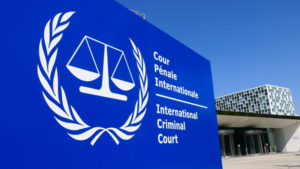 Promoting the Jurisdiction of the International Criminal Court (2019 – 2020)
Promoting the Jurisdiction of the International Criminal Court (2019 – 2020)
Students worked with lawyers at the International Criminal Court (ICC) to build on a convening on campus discussing an initiative to promote the ICC’s jurisdiction in a number of thematic areas. Following this meeting, students drafted a report on their takeaways and recommended further action. In the spring, students also completed a research assignment to move forward key recommendations that came out of the meeting.
 Protecting Protesters’ First Amendment Rights (2019 – 2020)
Protecting Protesters’ First Amendment Rights (2019 – 2020)
Students worked with the Lawyers’ Committee for Civil Rights Under Law to create “Know Your Rights” pamphlets on laws applicable to protesters in cities across the US, as part of its Protestor Protection Program, which protects the First Amendment rights of peaceful demonstrators. Through the program, the Special Litigation and Advocacy Project trains volunteer attorneys to serve as legal observers (monitor of law enforcement activity) during large scale protests and has created similar materials for a number of cities.
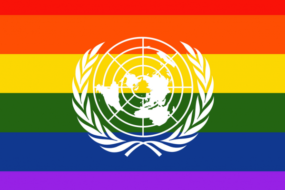 Collaborating with the UN Independent Expert on Protection against Violence and Discrimination based on Sexual Orientation and Gender Identity (2019 – 2020)
Collaborating with the UN Independent Expert on Protection against Violence and Discrimination based on Sexual Orientation and Gender Identity (2019 – 2020)
Students worked with Victor Madrigal-Borloz, UN Independent Expert on protection against violence and discrimination based on sexual orientation and gender identity (and senior visiting researcher at HLS), to prepare a report prior to a country visit that he is undertaking in his capacity as Independent Expert. Students researches the factual circumstances and legal framework of this country as it relates to protection of sexual orientation and gender identity, framing the areas of focus and analysis for Mr. Madrigal Borloz’s visit.
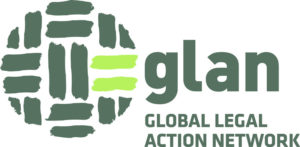 Conducting International Humanitarian Law Analyses of Airstrikes in Yemen (2019 – 2020)
Conducting International Humanitarian Law Analyses of Airstrikes in Yemen (2019 – 2020)
Students worked with the Global Legal Action Network (GLAN) to conduct international humanitarian law analyses of selected airstrikes conducted in Yemen via open source evidence analysis. Students synthesized these strike analyses into a written report that identified patterns and themes of aerial bombardment and the international legal issues posed.
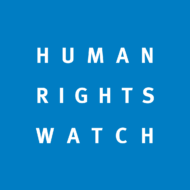 Researching the Human Rights Impact of Aluminum Supply Chain (2019 – 2020)
Researching the Human Rights Impact of Aluminum Supply Chain (2019 – 2020)
Students supported Human Rights Watch’s (HRW) West Africa division with its advocacy on the human rights impacts of bauxite mining and aluminum production. Students produced a memo analyzing global supply chain laws as they apply to the aluminum sector, also examining how other metal industries have sought to police their own supply chains.
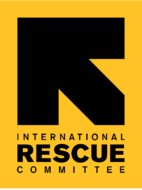 Supporting Displaced Communities in Thailand (2019 – 2020)
Supporting Displaced Communities in Thailand (2019 – 2020)
Students partnered with the International Rescue Committee (IRC) to support its work with displaced peoples from Myanmar based in Thailand. Students conducted research on means of strengthening alternative dispute resolution mechanisms in the camps and on local integration schemes around which to conduct advocacy.
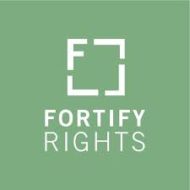 Engagement with Special Rapporteurs on Human Rights Violations (2016 – 2017)
Engagement with Special Rapporteurs on Human Rights Violations (2016 – 2017)
Villagers in Thailand who have been protesting against the operation of a gold mine have been violently attacked and faced criminal defamation lawsuits. This Advocates team worked with Fortify Rights to engage with United Nations Special Rapporteurs on human rights abuses relating to the mine, which also included environmental pollution and corruption issues. The work also involved conducting background research on the Special Rapporteurs and letter templates to the UN bodies.
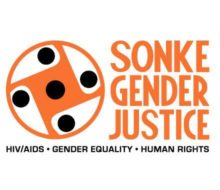 Reducing Sexual Violence in South African Prison Systems (2016 – 2017)
Reducing Sexual Violence in South African Prison Systems (2016 – 2017)
Advocates partnered with Sonke Gender Justice, a South African based NGO, to produce a comparative memorandum highlighting different policy and advocacy efforts advanced in 14 countries to reduce sexual violence in prisons. Countries studied were selected by the students involved in the project with a specific focus on gathering a cross-section of those in the developed and developing world. Advocates team members used this research to develop recommendations to reduce sexual violence in prisons in Malawi, South Africa, and Zambia.
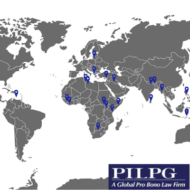 Public International Law and Policy Group Advocates Partnership (2016 – 2017)
Public International Law and Policy Group Advocates Partnership (2016 – 2017)
In this project, students partnered with the Public International Law & Policy Group (PILPG), a global pro-bono law firm that engages directly with states and non-state actors on issues that include war crimes prosecution, peace negotiations, and post-conflict constitution drafting. Students supported PILPG’s work with Syrian clients engaged in peace negotiations. The project incorporated key tenets of international criminal law, international humanitarian law (the laws of war), and international human rights law. Students researched core issues relating to the Syrian conflict and major violations of international law frameworks in the Syrian context. The final work product produced by team members was a client- sample memorandum detailing the prima facie case for the indictment of President Bashar al-Assad.
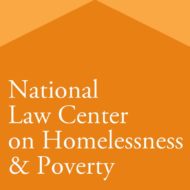 Massachusetts Homelessness Project (2015-2016)
Massachusetts Homelessness Project (2015-2016)
In partnership with the National Law Center on Homelessness and Poverty, a team of Advocates students researched and wrote an internal memorandum for our partner on the issue of criminalization of homelessness in Massachusetts. The student team did research on municipal codes of over 40 cities throughout Massachusetts to identify laws that have criminalized aspects of homelessness such as sleeping outside, loitering, and begging. The team then did public records requests to quantify the costs to society of these laws, as well as interviewed several local employees to learn about how the police interact with homeless people in Cambridge and the policies that are in place to combat criminalization.
Project Constitution
Developed by the Helen Suzman Foundation, Project Constitution is an outreach initiative to teach inner city high school students in Johannesburg, South Africa the basic principles of a constitutional democracy. The goals of the project include: creating a greater awareness of the Constitution, furthering civic education on all aspects of constitutional democracy, and supporting young people in developing skills and knowledge that enable and power them to be reflective, active, and participative citizens. University students will facilitate workshops on six topics: democracy, citizenship, separation of powers, rule of law, rights, and socioeconomic rights. Participants in the project assisted the Foundation in reviewing, critiquing, and refining materials for the workshops and devising creative ways to teach high school students about these issues.
Anti-Torture Legislative Toolkit
The purpose of this project was to create a reference manual and handbook for individuals and organizations interested in advocating for state legislation that would prohibit health care professionals from participating in torture and interrogations. Among other things, the toolkit aimed to: provide background information on the United States’ use of torture during the War on Terror and the United States’ reliance on health care professions in interrogations and torture; orient advocates to the official positions of national and international health care professional organizations and NGOs; introduce advocates to the international legal framework addressing issues of torture and interrogations; provide model legislation with detailed explanatory memorandum; and orient advocates to the legislative process. Project participants developed research, writing, and advocacy strategy skills and increased substantive knowledge of these issues through their work on this toolkit.
Innovating Human Rights
Innovating Human Rights is a project and workshop in which JD and LLM candidates discussed the cutting edge of human rights, met with leading experts, and proposed strategies for future innovation. The workshop connected participants to human rights experts in the Harvard community, tailored to fit participants’ areas of interest. We started the semester by considering common challenges that human rights advocates face and held an external workshop for social entrepreneurs to pitch their ideas to us in exchange for feedback. Project participants then worked together to develop projects that could be conducted within the Harvard and Boston communities. Participants in the Innovating Human Rights workshop deepened their advocacy and project development skills, created and became involved with impactful projects, and joined a vibrant community passionate about human rights.
Additional previous projects have included:
- Leading a reading group on sex trafficking and developing an externship project as part of a Thinking Big workshop
- Assisting with a legislative advocacy project to advance corporate accountability in state courts in the wake of Kiobel v. Royal Dutch Petroleum, in conjunction with the International Corporate Accountability Roundtable and EarthRights International
- Writing a brief to the European Court of Human Rights about a case of torture in Chechnya, on behalf of the torture victim and in close collaboration with Russian human rights organizations
- Conducting field research on the persecution of the Ahmadiyya minority in Bangladesh, with a subsequent article published in the Wall Street Journal describing the situation
- Developing a conflict analysis tool for use by the Office of the Prosecutor and the International Criminal Court in The Hague
- Writing an Amicus Brief to the U.S. Court of Appeals for the Fourth Circuit in a case about torture in Somalia
